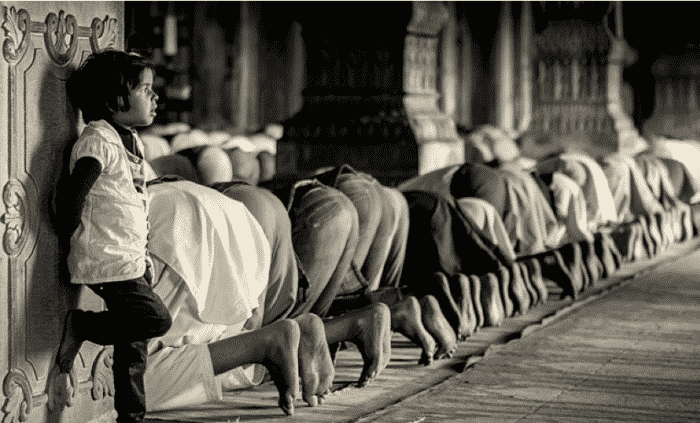Traditionally mosques have been run by men and segregate the sexes, but this is starting to change.
Qal’bu Maryam Women’s Mosque is run by women for women. Located in Berkeley, California, men are warmly received in praying alongside the women, but women are the primary audience.
Opened in April 2017, the mosque does not have a male Imam. Instead, the Jumu’ah prayer on Fridays is led by a variety of women.
The name of the mosque, Qal’bu Maryam, translates from Arabic to mean “Maryam’s Heart”, and this refers to Mary, the mother of Jesus. Such a name highlights the mosque’s inclusive aims, one of which is to recognise “the sistership between us and our Christian and Jewish allies”.
Rabi’a Keeble, the Muslim convert who founded the mosque, opened it as an inclusive space to learn, a place where both Muslim and non-Muslim women could “get the truth of Islam minus the patriarchy and male agendas that so often cloud it.”

There are other women-led mosques…
In the Kaifeng region of China, a nation with over 20 million Muslims, there are 16 women’s mosques and numerous female Imams. These are generations-old concepts, with its oldest surviving female mosque, Wangjia Hutong Women’s Mosque, being opened in 1820.
As well as being home to Qal’bu Maryam, California is also home to the Women’s Mosque of America, which is in Los Angles. Apart from boys under the age of 12, prayer services are exclusive to females.
Outside of the US and China, women-led mosques are cropping up around the world, and they currently exist in countries including South Africa, India and Denmark. There are plans for a women-led mosque to be opened in Bradford, the UK by 2020, but here male imams will lead prayers to mixed-gender congregations.
Controversy of women-led mosques and prayers
In 2005, Dr Amina Wadud caused controversy across the world when she led the Friday Jumu’ah prayers to a mixed-gender audience in New York.
Even though many Islamic scholars say the Koran never confronts whether or not women can lead prayers, most traditionalist Muslims think men should not hear female voices in prayer. Keeble states that “men are conditioned to believe that women’s voices are seducing and if they hear her voice they are pushed into an adulteress area.”
One point many are keen to make is that there is a difference between culture and religion. Yao Baoxia is an ahong (female Imam) in Kaifeng, and she says the status between female and male Imams is equal in her region, “maybe because we are a socialist country”.
Morocco is the first country in the Arab world to officially allow the training of female religious leaders. In 2005, Mohammed VI launched an initiative that included training morchidate, female spiritual guides. More recently in 2015, the King opened the Mohammed VI Institute of Imams, Morchidines and Morchidates, with the aim of the Morchidates being to elevate the status of women in Moroccan society and to fight against extremist thought.
The practicality of female-run mosques
In most mosques, women are contained to limited upper sections or a small area at the back of the mosque.
In Muslim feminist Hind Makki’s photography project Side Entrance, she charts female prayer spaces in mixed gender mosques around the world. Inspired after a friend was harshly condemned for using an empty male space to pray instead of the women’s area in a “hot, loud and mouldy” basement, Makki’s aim is to explore both successes and failures regarding equality in the Muslim world.
The development of female-run and female-only mosques is important because it gives females a welcoming space to pray, instead of being confined to a small space or staying at home.
In conversation with The Telegraph, Qari Asim, a senior Imam at the UK’s Model Mosque, Leeds Makkah Mosque, says that idea of women-led mosques is “fantastic”. He also notes that women-led mosques are a natural response, because “if you deny women and young people access to the mosque, or access to the decision-making process then eventually the reaction is going to be they’re going to start something of their own.”
Source: Qal’bu Maryam, a Women-Led Mosque Opens in California








